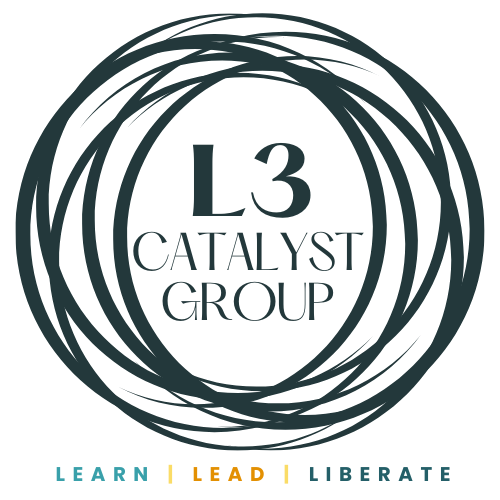Lessons I learned from my first semester teaching adjunct
A few weeks before school started this past fall, I was asked teach a class that was transformational for me when I was an undergraduate student: Diversity & Inequality in North America. Surprisingly, I said yes.
 Teaching this course in the Fall of 2024 offered neverending, relevant, current examples our studies, as we unpacked the stratified social systems of race, class, gender, and sexuality in the U.S. context from Sociological and Social Work perspectives.
Teaching this course in the Fall of 2024 offered neverending, relevant, current examples our studies, as we unpacked the stratified social systems of race, class, gender, and sexuality in the U.S. context from Sociological and Social Work perspectives.
It was wild to teach Diversity & Inequality in North America, while newly elected leaders promise to make Diversity, Equity, and Inclusion illegal.
As I enter the students’ final grades, closing the books on the semester, I marvel at all that I have learned by teaching adjunct. The images and vidoes we studied flit through my mind like a film. New research. New data. More clarity. More complexity. I hope that the students learned a few things that will stick with them as well.
I'll highlight some of my learnings here. I hope these things will encourage you and that they apply to your context as well.
1. Ask Inquiry Questions When you're convinced you’ll disagree with someone or you are threatened by their question, approach, or previous mindsets, take a step back. Pause. Breathe. Instead of reacting, ask an inquiry question to better understand their perspective. This simple shift opens the door for real dialogue and mutual understanding—a lesson I found invaluable in the classroom and beyond. Or it gives them a chance to double down. Either way, it typically brings more clarity.
When you're convinced you’ll disagree with someone or you are threatened by their question, approach, or previous mindsets, take a step back. Pause. Breathe. Instead of reacting, ask an inquiry question to better understand their perspective. This simple shift opens the door for real dialogue and mutual understanding—a lesson I found invaluable in the classroom and beyond. Or it gives them a chance to double down. Either way, it typically brings more clarity.
Asking inquiry questions and truly listening to the answer helps us learn, be open, and practice curiosity.
2. Context Matters
In every way, context shaped this semester. I was fortunate to be surrounded by a department of professors and staff who were incredibly supportive, answering my questions with patience and care. Their willingness to pause their important work nurtured a foundation of community in which I could use my gifts and be myself.
Be there for each other.
Additionally, the cultural context this fall in the U.S. deeply impacted the course and my teaching experience. Unpacking our stratified systems by race, class, gender, and sexuality was heavy, painful, and freeing to name the truth, especially in a national context in which our dominant narratives and socialization teach us to lie to ourselves and each other that this stratification doesn't even exist.
As I drove to campus the Monday after the U.S. election, with overt threats against the trans community spoken by the President-elect and VP-elect ringing in my ears, I was angry at myself, that I had said yes to teaching. Why this? Why this content? Why me? I'm a non-binary person, which is under the trans umbrella. I wanted to run away from having to attempt to justify the humanity, autonomy, and brilliance of queer and trans people to my students. How could I help them understand the the pain and fear that is present? What if I over-personalize it? What if I don't do the topic justice?
 I shifted my mindset, on that drive to work, to ask a different question. What is this opportunity? Why me? Why now? It became clear to me, that this course created space for honesty about marginalization and privilege. I hold both privileged and marginalized identities, as many in my classroom do as well. All semester we'd practiced unpacking examples by race, class, gender, and sexuality. Teaching on transphobia is similar to how we'd previously unpacked stratification wielded as a weapon to villify, dehumanize, and pepetrate violence upon people living in poverty, Black people, Native Peoples, gay and queer folks, and many more. Promising and passing anti-trans legislation are current examples of fear being wielded as a weapon to villify a group of people with lies about their danger and inhumanity.
I shifted my mindset, on that drive to work, to ask a different question. What is this opportunity? Why me? Why now? It became clear to me, that this course created space for honesty about marginalization and privilege. I hold both privileged and marginalized identities, as many in my classroom do as well. All semester we'd practiced unpacking examples by race, class, gender, and sexuality. Teaching on transphobia is similar to how we'd previously unpacked stratification wielded as a weapon to villify, dehumanize, and pepetrate violence upon people living in poverty, Black people, Native Peoples, gay and queer folks, and many more. Promising and passing anti-trans legislation are current examples of fear being wielded as a weapon to villify a group of people with lies about their danger and inhumanity.
I learned that teaching and continuing to learn about societal oppression is a profound opportunity. Students asked me "why doesn't everyone get to learn this information?" I helped students understand who benefits from the lack of knowledge. We more clearly saw systemic patterns that were previously invisible to them, even though they had experienced them their whole lives. I newly saw how interconntected we all are.
The cultural context was a gift that allowed us to unpack truth of a system that others some people and centers others.
3. Mistakes are a part of life; perfection is a lie. When we're trying something new, it can be easy to focus on our mistakes, missteps, and mess ups. Ya'll, I made SO MANY mistakes this semster. From learning how to use Moodle (the learning management system) to making the final exam viewable at 1:30 AM instead of 1:30 PM (test time).
When we're trying something new, it can be easy to focus on our mistakes, missteps, and mess ups. Ya'll, I made SO MANY mistakes this semster. From learning how to use Moodle (the learning management system) to making the final exam viewable at 1:30 AM instead of 1:30 PM (test time).
I know I'm not alone; we are afraid to tell the truth about our mistakes. Think of a time you messed up when you were in a new position. Can you relate?
It took a lot of work to not kick my own a$$. Instead of persevorating, I laughed at myself, shook it off, and asked for time to respond when I didn't know an answer.
I hope this modeled for students that perfection is a myth. Capable people don't have to fake perfection. Pefection is a tool of the oppressor.
Be patient with yourself and others imperfections. You can't know what you dont' know yet.
4. People are dealing with a lot of $hit that we know nothing about.
Every person is carrying complexity and struggles that we can’t see. We can get trapped into thinking other people have it easy or have it all figured out. This semster students and I dealt with so much: the death of a parent, health emergencies, family exclusion and estrangement, working tons of hours to pay bills, and the death of a coach, just to name a few. I'm really grateful students shared these things with me; it helped me respond openly with space, time, and care. Patience, curiosity, and openness create space for authenticity—whether in the classroom, workplace, or community.
People are going through tough...and amazing...things we know nothing about. When we create spaces of honesty to be there for eachother, we grow trust and community.
 5. Try things—even if they don’t work, you'll learn.
5. Try things—even if they don’t work, you'll learn.
Mid-semester, I invited my students to create a collaborative music playlist. They shared titles of songs that bring them energy to fight injustice. While I loved the playlist, I’m pretty sure most of them never listened to it. And that’s okay! It brought me joy, and knowing they contributed made it even more meaningful.
It's worthwhile to try new strategies or methods, even if they aren't wildly successful.
Gratitude and Closing Encouragement
I express deep gratitude to you, my friends and colleagues who encouraged me to take on this challenge, and listened to my stories as I processed my learning throughout this semester. Thank you.
Thank you, professor friends, for believing I could do justice teaching a course unpacking the complexities of race, class, gender, and sexuality in the U.S. I learned more than I ever imagined over these past four months.
I'm grateful to each of my students: thank you for all that you taught me.
 I offer deep gratitude for each and every teacher. Thank you for loving and teaching other people's children. I wish our society valued it more. You are the real superheroes.
I offer deep gratitude for each and every teacher. Thank you for loving and teaching other people's children. I wish our society valued it more. You are the real superheroes.
To each of you, my closing encouragement:
Take risks.
Find and relish the joy of community.
Ask for help when you need it.
Be patient with yourself when you mess up.
Pick yourself up and try again.
Be open to learning from everyone around you.
Whether in the classroom, workplace, or anywhere in life, let’s create spaces where people can show up as their authentic selves and contribute meaningfully.
This semester was one of the hardest and most joyful experiences of my life. While I’ve decided to take a break from teaching next semester, I hope I get the chance to say yes to teaching this course again someday.
There are so many beautiful and brutal lessons yet to learn. For this I am deeply grateful.
What have you learned this semseter? I'd love to hear about it in the comments, over coffee, or on Zoom.
Fellow leaders and learners, I wish you courage, rest, and beloved community for the journey. Together we catalyze a brave, bold, and liberatory future.


December 18, 2024




Comments